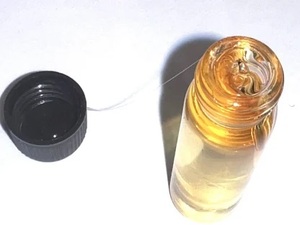How Delta-9 Distillates Are Made: Extraction Methods Explained
Body
Delta-9 THC distillates have surged in popularity due to their potency, purity, and versatility. But how exactly are these concentrated cannabis products made? Understanding the extraction process can help consumers appreciate what goes into producing a high-quality distillate. Here’s a clear breakdown of the most common methods used to create Delta-9 THC distillates.
1. Starting with Cannabis or Hemp
The first step in creating Delta-9 distillates is sourcing raw plant material. Depending on legality and the desired THC content, producers may use high-THC cannabis flower or hemp strains with lower THC levels. The plant material is carefully dried and ground to maximize the surface area for extraction.
2. Solvent-Based Extraction
One of the most widely used methods for producing Delta-9 distillates is solvent-based extraction. This process uses solvents such as ethanol, butane, or propane to dissolve cannabinoids and terpenes from the plant material. The mixture is then filtered to remove plant solids. After filtration, the solvent is evaporated, leaving behind a concentrated oil rich in Delta-9 THC.
Each solvent comes with its own advantages. Ethanol is safe and effective for large-scale extractions, while butane and propane can produce highly potent concentrates with a cleaner flavor profile when done correctly. Safety is critical, as these solvents are flammable and require precise equipment and procedures.
3. CO2 Extraction
Another popular method is supercritical CO2 extraction. In this technique, carbon dioxide is pressurized and heated until it reaches a supercritical state, where it behaves like both a gas and a liquid. This supercritical CO2 is passed through the plant material, extracting cannabinoids and terpenes efficiently.
CO2 extraction is favored for its precision and ability to produce a clean, solvent-free product. Producers can adjust temperature and pressure to selectively extract specific compounds, resulting in a highly pure distillate.
4. Winterization and Filtration
After extraction, the crude oil contains unwanted compounds like waxes, fats, and chlorophyll. Winterization is a process where the oil is mixed with alcohol and cooled to very low temperatures, causing these impurities to solidify. The mixture is then filtered to remove the solids, leaving behind a purified cannabinoid solution.
5. Short-Path Distillation
The final step in producing Delta-9 THC distillate is short-path distillation, a process that separates cannabinoids based on their boiling points. Using heat and vacuum pressure, Delta-9 THC is isolated from other compounds, resulting in a clear, potent, and highly refined product. This step ensures the final distillate is free from residual solvents, impurities, and plant matter.
Conclusion
Delta-9 THC distillates are the result of meticulous extraction and purification processes. From solvent-based and CO2 extraction to winterization and distillation, each step is designed to concentrate THC and remove unwanted compounds. Understanding these methods not only highlights the craftsmanship behind distillates but also helps consumers make informed choices about the products they use. High-quality Delta-9 distillates offer potency, consistency, and versatility, making them a staple in the world of cannabis concentrates.









Comments